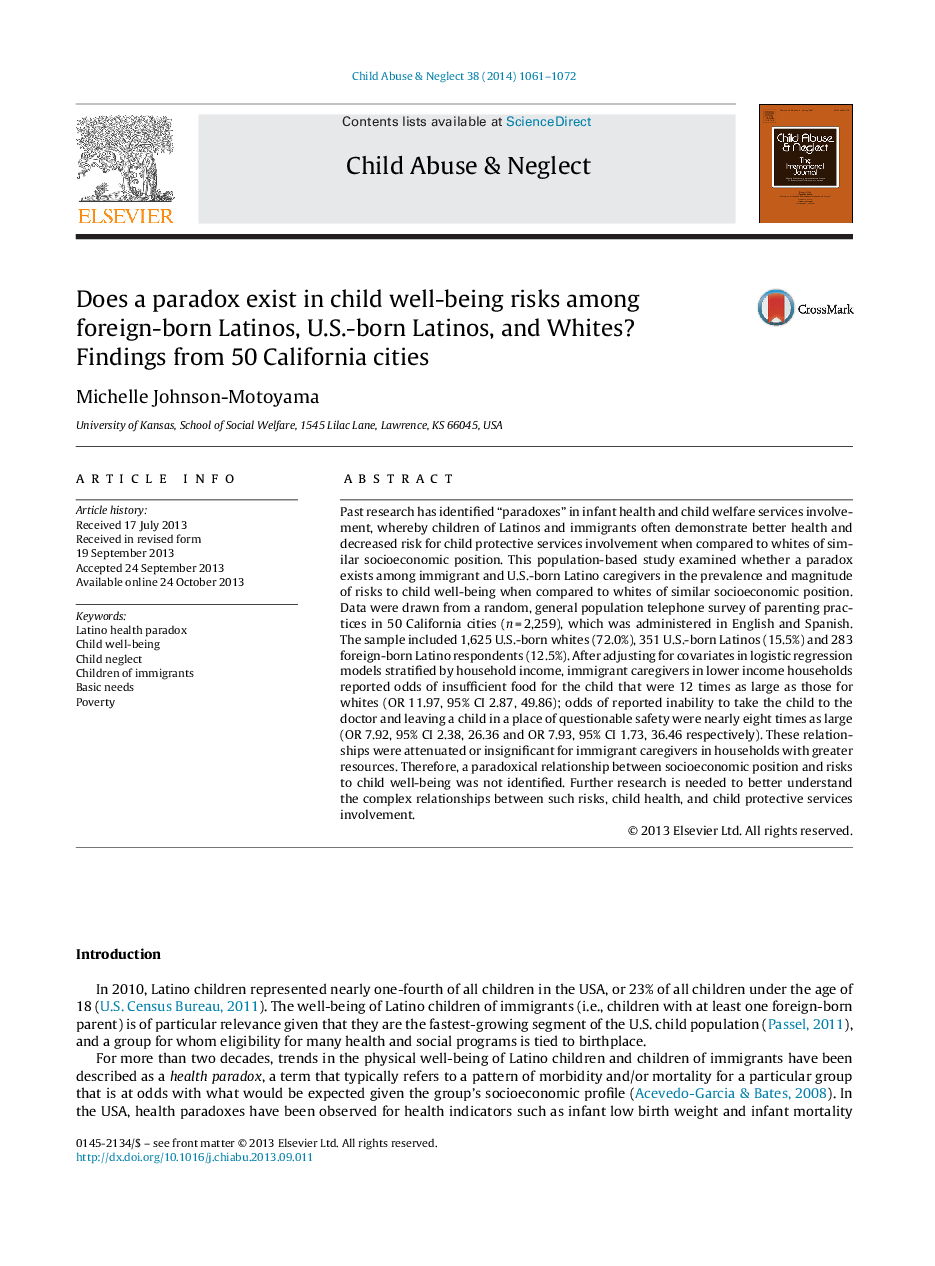| Article ID | Journal | Published Year | Pages | File Type |
|---|---|---|---|---|
| 344858 | Child Abuse & Neglect | 2014 | 12 Pages |
Past research has identified “paradoxes” in infant health and child welfare services involvement, whereby children of Latinos and immigrants often demonstrate better health and decreased risk for child protective services involvement when compared to whites of similar socioeconomic position. This population-based study examined whether a paradox exists among immigrant and U.S.-born Latino caregivers in the prevalence and magnitude of risks to child well-being when compared to whites of similar socioeconomic position. Data were drawn from a random, general population telephone survey of parenting practices in 50 California cities (n = 2,259), which was administered in English and Spanish. The sample included 1,625 U.S.-born whites (72.0%), 351 U.S.-born Latinos (15.5%) and 283 foreign-born Latino respondents (12.5%). After adjusting for covariates in logistic regression models stratified by household income, immigrant caregivers in lower income households reported odds of insufficient food for the child that were 12 times as large as those for whites (OR 11.97, 95% CI 2.87, 49.86); odds of reported inability to take the child to the doctor and leaving a child in a place of questionable safety were nearly eight times as large (OR 7.92, 95% CI 2.38, 26.36 and OR 7.93, 95% CI 1.73, 36.46 respectively). These relationships were attenuated or insignificant for immigrant caregivers in households with greater resources. Therefore, a paradoxical relationship between socioeconomic position and risks to child well-being was not identified. Further research is needed to better understand the complex relationships between such risks, child health, and child protective services involvement.
